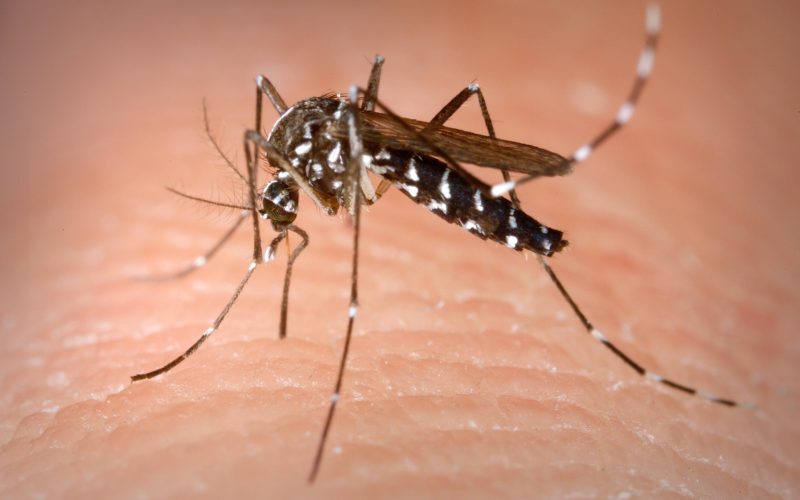Dutch citizens going on vacation in the coming months can advance science by helping to map mosquitoes, ticks and the diseases they can transmit. Anyone of 18 years and older who will be on vacation for seven days or more this year in the Netherlands, Europe or the Dutch Caribbean can participate. While on vacation, a few questionnaires need to be answered via an app. In addition, participants will be asked to donate a few drops of blood once through a finger prick. Interested parties can easily register at www.ohtravel.nl.
UMC Utrecht, Leiden University Medical Center and Erasmus MC are jointly investigating which and where mosquito and tick-borne diseases occur in Europe and the Dutch Caribbean. They are collaborating on this within the One Health Travel study. For this study the help of as many as possible Dutch people is needed. Research leader Dr. Patricia Bruijning of UMC Utrecht: “Everyone is looking forward to a beautiful summer. However, the summer weather is accompanied by mosquitoes and ticks that are becoming active. Climate change is also pushing up the boundaries within which these creatures can live and transmit diseases to humans. So it is important for the Netherlands to know where they are located and what diseases they carry. And because many Dutch people vacation in their own country, Europe or the Caribbean, they can be of great help to science in this regard. It’s low-threshold to participate, so I hope a lot of Dutch people will contribute.”
People who register at www.ohtravel.nl will receive an email containing a link to the One Health Travel app for Google and Apple. After downloading the app a few questions will be asked related to the upcoming vacation. Then, leading up to and during the vacation, a few push messages from the app containing questionnaires will follow. Upon returning home, a small amount of blood needs to be sent in to see if and what antibodies might be in the blood. There is no fee associated with the study; the app and finger prick are provided free of charge.
Mosquito and tick bites are not only annoying, but can also transmit bacteria and viruses that can cause diseases such as Lyme disease, tick-borne encephalitis, West Nile, Chikungunya, Dengue and Zika virus infections. Global warming and the increasing mobility of people and animals increase the risk of contact with these pathogens and contracting these diseases, including in Europe and the Dutch Caribbean. Therefore, adequate mapping of these pathogens is of great importance. The One Health Travel study is part of the One Health Pact research project that maps the risks to humans and animals of these diseases.
